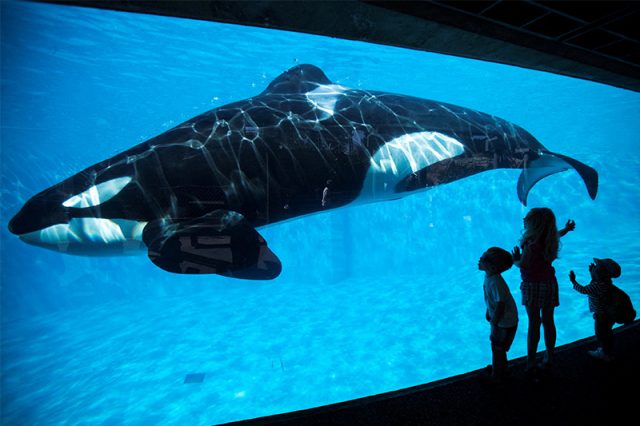
A Florida aquarium has reached a deal with animal welfare advocates to release Lolita, a 5,000-pound (2,268 kg) killer whale held in captivity for more than half a century, officials said on Thursday.
The Miami Seaquarium said it had reached a “binding agreement” with nonprofit Friends of Lolita to return the whale, who recently retired from performances, to an ocean habitat in the Pacific Northwest within two years.
Lolita, a 57-year-old orca captured in 1970 in a cove off Seattle, is also known as Toki, a name that is short for the whale’s Native American name of Tokitae, the Miami Herald reported. The plan to return Lolita to her natural habitat requires federal approval, according to the newspaper.
The process to return Lolita to her “home waters” was years in the making, beginning with the transfer of the aquarium’s ownership to The Dolphin Co, Miami-Dade County Mayor Daniella Levine Cava said at a news conference. The company later partnered with the nonprofit to provide medical care to the whale.
The Seaquarium’s previous owner, SeaWorld Entertainment Inc SEAS.N, phased out killer whale shows in 2016. Lolita, once a top attraction at Seaquarium, was retired from shows in March 2022 after management changed hands.
“Finding a better future for Lolita is one of the reasons that motivated us to acquire the Miami Seaquarium,” The Dolphin Co Chief Executive Eduardo Albor said in a statement.
The push to free Lolita gained momentum after the 2013 documentary “Blackfish” highlighted the captivity of orcas.
Animal rights advocates for years fought unsuccessfully in court to obtain Lolita’s freedom after the National Oceanic and Atmospheric Administration added orcas to the endangered species list in 2015.
Killer whales are highly social mammals that have no natural predators and can live up to 80 years.
—Reporting by Tyler Clifford in New York; Editing by Bill Berkrot





